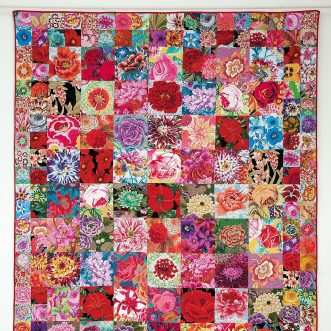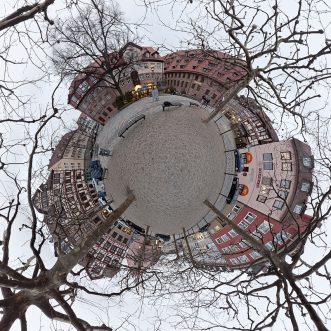July 18, 2023
Today seemed like a good day to revisit this blog post, inspired four and a half years ago, by Seth Godin:
“In the last fifty years, thanks to Deming and Crosby and others, we’ve gotten significantly better at creating perfect outputs that don’t rely on heroism and luck. Design a better system, you’ll get better outputs.
I’m grateful every day for the nearly invisible perfect things that I count on… but, and I feel spoiled to say this, I take the perfect for granted.
I’m way more interested, and spend far more time and money on the imperfect things, the things that might not work, the ideas and services and products that dance around the edges.”
I agree. Over time, the perfection of processes has freed ever more of us up to spend ever more time on the interesting, edgy things – telling stories instead of fetching water, making art instead of travelling for days on end, discovering new things instead of cooking, connecting with and trusting strangers instead of only dealing with people we already know.
But I also disagree with Seth’s implication that you can only have one or the other, perfect process or interesting edge, invisible clockwork or flesh and blood.
For me the fascinating challenge is to how to combine both.
How do you put enough process in place to make sure that what should be invisible stays invisible, without restricting the free exploration that discovers new edges?
How do you ensure that clockwork-like perfection supports and enables flesh and blood to dance around the edges, making things more human, more emotional, more daring?
If a process framework is like a musical score, how do you make it more jazz than classical?
I didn’t have a perfect answer, then, and I don’t now, but I am getting closer.
- It’s about defining a floor (even better, a springboard), ‘the least that should happen’, along with strict guardrails – your Unbreakable Promises, that constrain possible actions to what fits with your Promise of Value.
- It’s about defining ‘what’, not ‘how’.
- It’s about maps, not GPS tracking.
- It’s about embracing uncertainty for its potential upside, while making sure any downside won’t kill you.
- It’s about automating drudgery, to free humans to be human, and play.
Above all, its about giving human beings the context, the tools and the authority to think for themselves and take the consequences, good as well as bad.
It’s about freedom. Freedom that recognises every other’s right to the same.
Discipline makes Daring possible
Ask me how.










One of the first things a professional de-clutterer will do is get rid of ‘duplicates’.
This is a strictly utilitarian view, that says one cake-slice is much like another, and ignores all the possible reasons why you might end up with 10 of them.
You might have received one as a gift, or inherited one from a parent or friend. You might have had to rush out and buy new because you couldn’t put your hand on one just when you needed it. You might have just liked the look of it.
Or you might simply be satisfying that very human urge for repetition with variation that encourages us to build collections.
All that makes choosing ‘the one’ that’s going to stay, emotional and just a bit stressful, especially if you’re made to feel judged by your inability to maintain a minimal lifestyle.
Which might be one reason I dislike de-cluttering TV programmes so much.
As you grow your small business, working out what your clients really want, and finding new ways to delight them, you acquire business processes like I acquire cake-slices.
You inherit them from your previous workplace, or maybe even the previous owner. A new employee gifts you a shiny new one. You cobble a new one together in a rush, because you can’t quite put your hand on the one you did earlier when you need it.
Or, as happens when we’re in the thick of it, it’s simply easier to focus on the differences between cases rather than the similarities.
Luckily, business processes aren’t like cake slices. We don’t have to choose.
We can combine the best features of all of them to create one beautiful and super-useful process, with all the emotion built in, and still with room enough to deal with a new kind of cake.
That means that when I work with clients, I can start by assuming we’re going to keep everything, and work on capturing and streamlining the most salient version – the one that happens most, or is the most difficult to hand over, or the most complicated.
Usually, by the time we’ve worked through that, the owner has realised that they don’t need all the others. This new process covers all the options.
We check to make sure of course. And if, on further inspection, it turns out we do need another version, we put that in place, reusing as much of the newly designed process as we can.
No stress. No agonising over what to keep and what to throw away. No being made to feel like you are in the wrong.
Just the relief of knowing that all that clutter is now out of your head, and out of the business too. Making it a calmer, clearer place to work for everyone, with added room for innovation.
Discipline makes Daring possible.
I’m Kirsten Gibbs, Boss Disappearer, and I can help you write your Customer Experience Score , to make your business easier to run, easier to grow and easier to build into a legacy you’ll be proud of.
Ask me how.